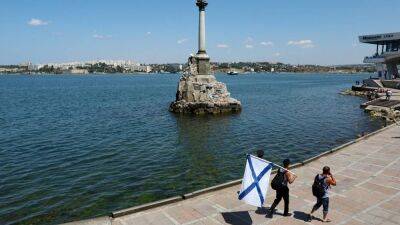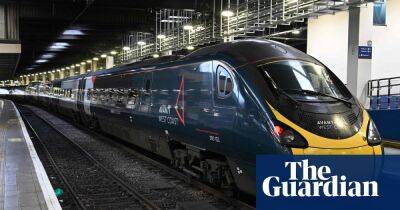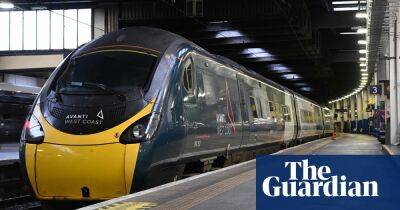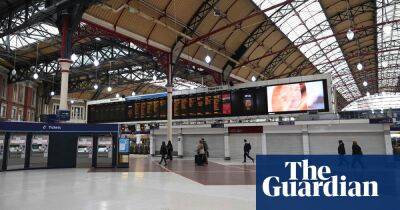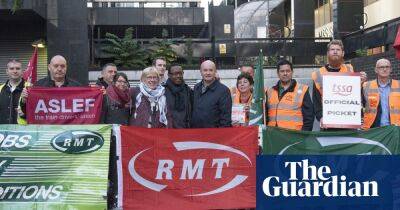Biggest rail strike in decades will halt most trains in Britain
The biggest rail strike in Britain for decades will bring most trains to a halt throughout Saturday, with unions combining industrial action for the first time this year.
No trains will run in many areas, with no direct services at all on some intercity routes between London to Birmingham, Manchester and Edinburgh.
With drivers as well as signallers on strike, only about 11% of normal schedules will be in operation. Disruption will be significantly worse than during other rail strikes this year, as members of the RMT, Aslef and TSSA unions will all be on a 24-hour strike – timed to coincide with the start of the Conservative conference in Birmingham.
Strikes planned for last month were called off because of the mourning period after the death of Queen Elizabeth II.
The few trains that do run will start later and finish earlier than usual. Avanti West Coast will not run any trains, and there will be no services between England and Wales.
Network Rail has advised passengers who still wish to travel on Saturday to only do so if absolutely necessary, to expect disruption, and to check National Rail Enquiries or train operator websites for updates, especially for times of the last train to depart. Services will also be disrupted on Sunday morning, with a later start, as staff return to work.
Further strikes are also planned for Wednesday 5 October by drivers in Aslef, and Saturday 8 October by the RMT union.
Mick Whelan, the general secretary of Aslef, said more strikes were likely to follow. While union leaders held talks with train operators in recent days, as well as having meetings with the new transport secretary, Anne-Marie Trevelyan, last month, Whelan said they were no nearer a resolution.
Drivers’ demands to lift a pay
Read more on theguardian.com








